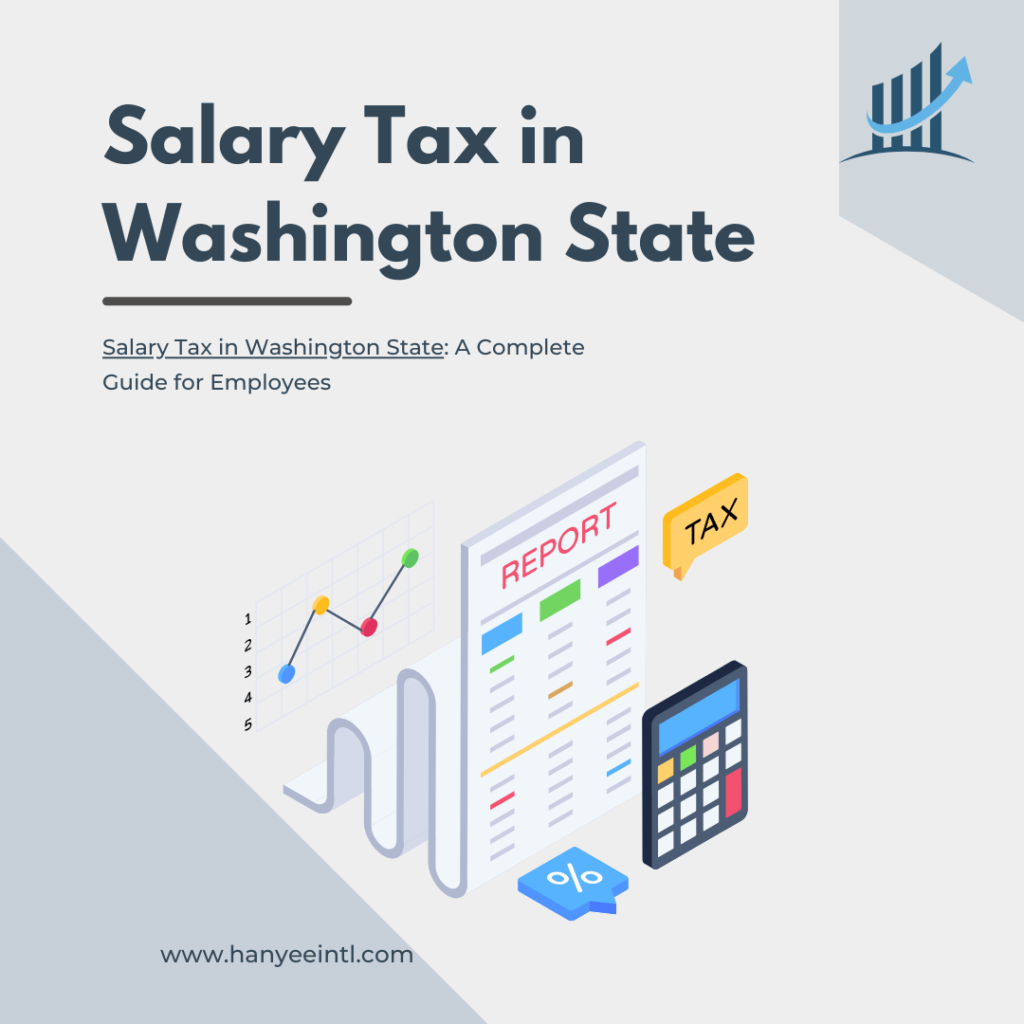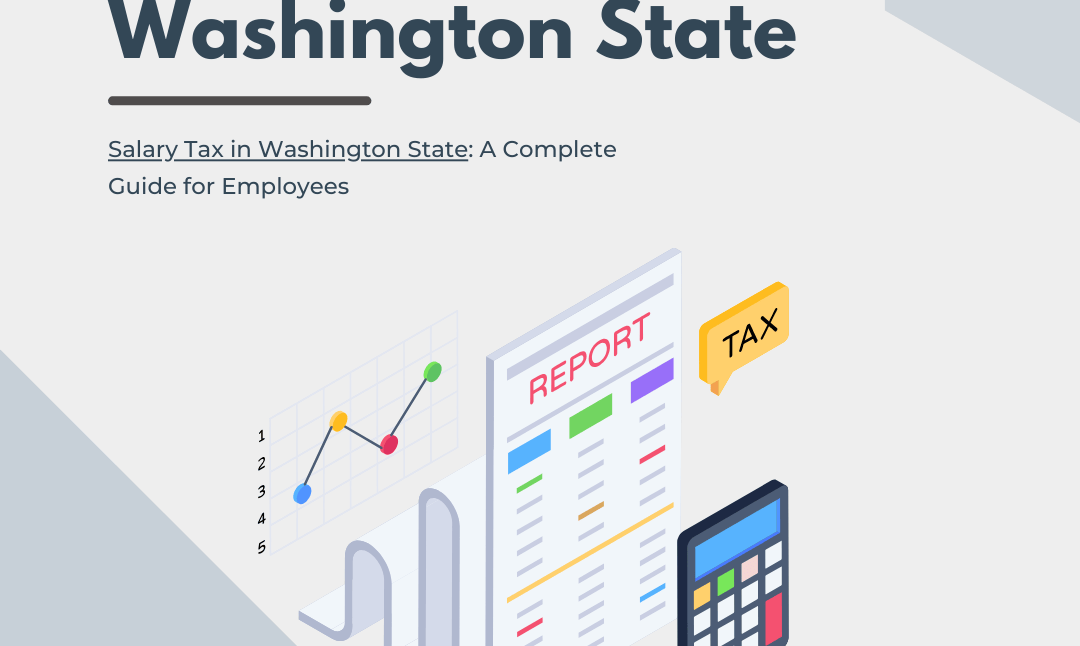
Salary Tax in Washington State: A Complete Guide for Employees
Navigating salary taxes in Washington State can be challenging, especially since it differs from many other U.S. states due to unique tax regulations. This article covers the essentials of salary tax in Washington State, including income tax (or lack thereof), payroll deductions, Social Security, Medicare, and other aspects that affect your paycheck. Understanding these details will help Washington employees plan their finances better, know what to expect on payday, and stay compliant with state and federal tax laws.
Does Washington State Have an Income Tax?
One of the most notable features of Washington State’s tax system is the absence of a state income tax. Washington is one of only a few states in the U.S. that does not impose an individual income tax, which means your salary is not directly taxed by the state. However, residents are still responsible for federal income taxes, payroll taxes, and other deductions.
What Does This Mean for Your Take-Home Pay?
Because there is no state income tax, Washington residents often see a higher percentage of their gross pay reflected in their take-home pay compared to states with income taxes. However, it’s essential to understand that other types of taxes, such as federal income tax and payroll taxes, will still apply.
Federal Income Tax and Payroll Deductions
Even though Washington State doesn’t impose a state income tax, federal tax obligations still apply. Let’s go through the key federal deductions that will impact your salary.
1. Federal Income Tax
The federal income tax is the largest deduction from your paycheck. The amount withheld is determined by your income level, tax filing status (e.g., single, married filing jointly, etc.), and any adjustments or deductions you claim on your W-4 form. The Internal Revenue Service (IRS) sets the tax brackets and rates, which range from 10% to 37% for different income levels.
To optimize your federal tax withholdings, make sure your W-4 form is up to date, especially if you’ve recently had life changes like marriage, a new child, or a change in income.
2. Social Security Tax
Social Security tax is a mandatory payroll deduction under the Federal Insurance Contributions Act (FICA). Currently, employees contribute 6.2% of their wages up to an annual wage base limit, which is $160,200 in 2023. Employers are also required to match this 6.2% contribution, meaning 12.4% of your salary (up to the wage base) is contributed to Social Security in total.
3. Medicare Tax
Medicare is another federal payroll tax, also deducted under FICA. This tax is set at 1.45% of your wages, with no wage base limit, meaning that all of your income is subject to this deduction. Employers match this contribution, for a total of 2.9% contributed toward Medicare. Additionally, individuals earning over $200,000 ($250,000 for married couples filing jointly) are subject to an additional Medicare tax of 0.9%.
Other Deductions and Local Taxes in Washington
Although Washington State does not have a state income tax, some localities may impose their own taxes or fees, and other deductions can still apply. Below are some considerations for Washington residents.
1. Washington Paid Family and Medical Leave (PFML)
Washington is one of the few states with a paid family and medical leave program. Employees contribute to this program via payroll deductions, with an average deduction rate of 0.6% of gross wages as of 2023. This rate can vary yearly and includes contributions from both employees and employers. PFML helps fund paid leave for qualifying events, such as personal medical emergencies or caring for a family member.
2. Workers’ Compensation
Washington State requires most employers to provide workers’ compensation insurance, which offers coverage in the case of work-related injuries or illnesses. This cost is typically borne by the employer, although a portion may be deducted from employee wages.
3. Unemployment Insurance (UI)
Washington also has unemployment insurance, and employers contribute to the state’s unemployment insurance fund. Employees do not directly pay into this fund, but it is still a factor in employer payroll expenses.
How Does Washington’s Tax Structure Impact Cost of Living?
While the absence of a state income tax benefits workers by increasing their take-home pay, Washington has a higher-than-average sales tax rate, currently around 6.5% at the state level. Many cities and counties add additional sales taxes, leading to combined rates of 9-10% in many areas. Washington also has high excise taxes on products like gasoline, alcohol, and cigarettes, which contribute to the overall cost of living.
Frequently Asked Questions About Salary Tax in Washington State
1. How much of my paycheck goes to taxes in Washington?
The percentage of your paycheck going to taxes will primarily depend on your federal income tax bracket, Social Security, and Medicare deductions. Additional deductions may apply for PFML and any retirement or health savings plans offered by your employer.
2. What forms should I fill out for my paycheck withholdings?
The key form for paycheck withholdings is the IRS Form W-4, which determines your federal income tax withholding. Keeping this form updated helps ensure the correct amount is withheld, reducing the chance of overpaying or underpaying federal taxes.
3. Can I claim tax credits or deductions as a Washington resident?
Yes, although there is no state income tax, Washington residents can still claim federal deductions and tax credits, including the Earned Income Tax Credit (EITC), Child Tax Credit (CTC), and others if they qualify.
4. Does Washington State have a “capital gains tax”?
Yes, beginning in 2022, Washington implemented a 7% capital gains tax on the sale of long-term capital assets, such as stocks and bonds, over $250,000 in profit. This tax is distinct from the income tax system and applies only to certain types of income.
Final Thoughts on Salary Tax in Washington State
Washington State’s tax structure offers clear benefits for many residents by avoiding income tax, leading to potentially higher take-home pay. However, understanding your total tax obligations is essential for effective financial planning. Federal payroll taxes, local fees, and state programs like PFML still affect your net earnings, making it necessary to stay informed and organized.
Whether you are a new resident or a longtime Washington employee, keeping up with the latest tax laws and deductions can help you make the most of your income in the Evergreen State.





